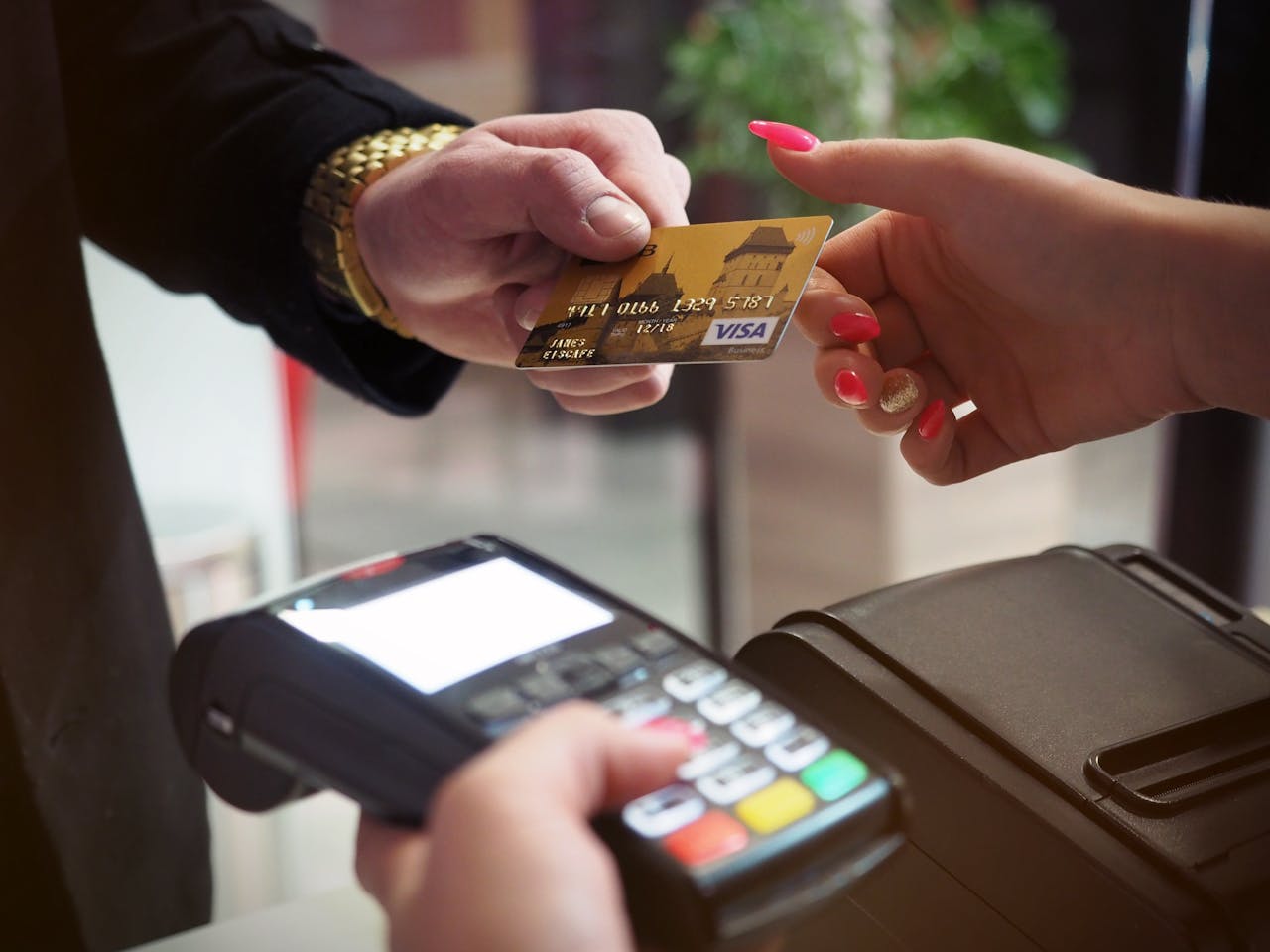Bank holiday shopping offers great chances to save money on big purchases. Many stores slash prices and run special promotions during these times. Savvy shoppers can bag impressive bargains if they know where to look.
Table of Contents

Planning ahead and doing research can help you find the best deals during bank holiday sales. It’s smart to make a list of items you want to buy and check prices beforehand. This way, you can spot genuine discounts and avoid getting caught up in the excitement of fake sales.
Online shopping gives you more options to compare prices and find bargains. But in-store shopping can be worth it too, especially for big-ticket items. You might negotiate better deals in person. Some shops offer exclusive in-store discounts not available online.
Key Takeaways
- Plan ahead by researching prices and making a shopping list
- Compare online and in-store deals to find the best savings
- Be wary of false discounts and focus on genuine bargains
Understanding Bank Holidays
Bank holidays are special days when banks and many businesses close. These holidays often bring big sales and shopping events. Knowing when they happen can help shoppers find great deals.
Significance of Bank Holidays in Retail
Bank holidays are key dates for shops. Many stores offer special deals to attract customers who have the day off work. Big sales often start before the holiday and last for several days after.
Retailers use these events to boost sales during slow periods. They might slash prices on seasonal items or overstocked goods. Some shops create special product bundles or offer extra discounts for loyalty card holders.
Online shops join in too. They may have countdown clocks or flash sales to create urgency. Free shipping is a common perk during these times.
Seasonal Bank Holiday Trends
Different bank holidays have their own shopping trends. Spring bank holidays often focus on outdoor gear and garden items. Summer sales might feature holiday clothes and travel goods.
The August bank holiday is known for end-of-season clearances. Shops try to clear out summer stock to make room for autumn items.
Winter bank holidays, like Boxing Day, are huge for retail. Many people use Christmas gift money to snap up bargains. January sales often start right after Christmas and can last for weeks.
Some trends are consistent across all bank holidays. Electronics, home goods, and clothing are usually on sale. Car dealers and furniture shops also tend to have special offers.
Preparing for Bank Holiday Shopping
Good planning is key to getting the most out of bank holiday sales. Setting a budget and making a wish list help shoppers stay focused and avoid overspending.
Setting a Budget
Before hitting the shops, it’s wise to decide how much to spend. Look at your finances and work out a realistic amount. This keeps you from going overboard during sales.
Break down your budget by category. Set limits for different types of items like clothes, electronics, or home goods. This helps spread the money across all your needs.
Don’t forget extra costs like food and travel if you’re going to physical shops. Factor these in to avoid surprises.
Consider using cash or a prepaid card to stick to your budget. It’s harder to overspend when you can see the money leaving your wallet.
Making a Wish List
Create a list of items you want or need before the sales start. This stops impulse buys and keeps you on track.
Research prices ahead of time. Know the regular cost of items on your list. This helps you spot genuine bargains during the sales.
Prioritise your list. Put must-haves at the top and nice-to-haves at the bottom. If you run out of money or time, you’ll have nabbed the most important things.
Be specific with your list. Instead of “new trainers”, write “blue running shoes, size 8”. This makes shopping quicker and more focused.
Share your list with family or friends who might be buying gifts. They can look out for deals on items you want.
Maximising Online Deals

Bank holiday shopping online offers great opportunities to save money. Smart strategies can help you find the best discounts and take advantage of exclusive offers.
Navigating Online Sales
Start by making a list of items you want to buy. Sign up for email newsletters from your favourite shops to get early access to sales. Compare prices across different websites using price comparison tools.
Many retailers offer special bank holiday deals on their websites and apps. Check these regularly, as offers can change quickly. Some shops have flash sales with big discounts for a limited time.
Set up price alerts for specific items you’re interested in. This way, you’ll be notified when the price drops. Don’t forget to look for free shipping offers, which can save you even more money.
Utilising Discount Codes and Vouchers
Look for discount codes before making a purchase. These can often be found on the retailer’s website or through voucher code websites. Some codes offer a percentage off your total purchase, while others give free shipping.
Follow brands on social media to find exclusive discount codes. Many companies share special offers with their followers.
Consider using cashback websites when shopping online. These sites give you a percentage of your purchase back as cash or vouchers.
Check if your credit card offers any cashback or rewards for online shopping. Some banks have special deals with certain retailers during bank holidays.
In-Store Shopping Strategies

Smart planning and savvy techniques can help you find great deals when shopping in physical stores during bank holidays. Knowing where to look and how to time your visits can lead to big savings.
Finding the Best In-Store Discounts
Look for clearance sections in shops, as these often have the deepest discounts. Check end-of-aisle displays for special offers and promotions. Many stores use these areas to showcase their best deals.
Sign up for loyalty programmes and store credit cards. These often give members early access to sales or extra discounts. Some shops offer price matching, so bring adverts from competitors to get the lowest price.
Keep an eye out for “doorbuster” deals. These are limited-time offers available only to early shoppers. They’re usually on popular items to draw customers in.
Strategising Your Store Visits
Plan your shopping route in advance. Start with the shops that have the items you want most. This helps ensure you don’t miss out on limited stock.
Arrive early to beat the crowds and get the best selection. Some stores open extra early on bank holidays, so check opening times beforehand.
Consider shopping later in the day too. Some shops offer additional discounts in the evening to clear stock.
Bring a list to stay focused and avoid impulse buys. It’s easy to overspend when surrounded by deals. Stick to your budget and prioritise your needs.
Leveraging Price Comparison Tools

Price comparison tools can be a shopper’s best friend during bank holiday sales. These handy websites and apps allow you to quickly check prices across multiple retailers.
Some popular price comparison sites in the UK include PriceRunner, Kelkoo, and Google Shopping. They let you search for specific items and see current prices from various shops.
Many of these tools also offer price history charts. These show how an item’s cost has changed over time. This feature helps you spot if a “sale” price is truly a good deal.
Top tips for using price comparison tools:
• Set up price alerts for items you want
• Check prices at different times of day
• Look for voucher codes on comparison sites
• Read user reviews to assess product quality
Remember that the cheapest price isn’t always the best value. Factor in delivery costs, return policies, and seller ratings when making decisions.
Some price comparison tools also have browser extensions. These automatically check for better deals as you shop online. They can save time and help you avoid missing out on savings.
Spotting and Avoiding False Discounts

Some retailers use deceptive pricing tactics during bank holidays. Shoppers need to be aware of these tricks to avoid falling for fake deals and get real savings.
Understanding Pricing Tactics
Many shops raise prices just before a sale, then lower them to create the illusion of a discount. This “high-low pricing” makes deals seem better than they are. Some stores use “anchor pricing”, showing an inflated original price to make the sale price look like a bargain.
Watch out for vague claims like “up to 50% off”. Often only a few items have the maximum discount. Most products may have much smaller markdowns.
Beware of “was/now” pricing that compares current prices to rarely-used higher prices. This can make ordinary prices seem like great deals.
Verifying Genuine Savings
Use price tracking websites to check an item’s price history. These show if the current “sale” price is truly lower than usual. Some popular UK trackers are CamelCamelCamel for Amazon and PriceRunner for multiple shops.
Compare prices across different retailers. A “discount” at one shop might be the normal price elsewhere. Price comparison sites like PriceGrabber can help with this.
Read the fine print on offers. Look for exclusions, minimum spends, or other terms that limit the value of a deal. Be wary of multi-buy offers that may lead to overspending.
Check if cheaper alternatives or older models offer better value than discounted new items. Sometimes last year’s tech on clearance is a smarter buy than this year’s “sale” model.
Timing Your Purchases
Getting the best bank holiday deals often comes down to timing. Knowing when to shop can make a big difference in the discounts you find.
Early Bird Strategies
Shops often release their best deals early in the bank holiday period. Be ready to shop as soon as sales start. Many retailers now begin their promotions online before the actual holiday.
Sign up for email alerts from your favourite shops. They often send exclusive early access codes to subscribers.
Check social media accounts of stores you like. They may post flash sales or limited-time offers.
Some credit cards offer early access to sales for cardholders. Check if yours has this perk.
Consider shopping the night before the bank holiday. Some stores start discounts at midnight.
Last-Minute Deals
If you missed the early deals, don’t worry. Shops often slash prices further near the end of the holiday.
Keep an eye out for “final clearance” signs in stores. These indicate the deepest discounts.
Online retailers may offer extra reductions on the last day of sales. Check your favourite sites in the evening.
Some shops have flash sales in the final hours. These can offer huge savings, but stock may be limited.
Be ready to act fast. Last-minute deals can sell out quickly, especially for popular items.
Making the Most of Extended Returns Policies
Many shops offer longer returns periods during bank holidays. This gives shoppers more time to change their minds about purchases.
To take advantage of these policies, keep all receipts and packaging. Store them in a safe place at home. This makes returns easier if needed.
Check the returns policy before buying. Look for key details like the last return date and any conditions. Some items may have different rules.
Don’t remove tags or use products you might return. This could make them non-returnable. Try on clothes at home, but keep them clean and tidy.
Consider buying items you’re unsure about during sales. The extended policy gives you more time to decide. This works well for gifts or seasonal items.
Keep track of return deadlines. Set reminders on your phone or calendar. This helps avoid missing the cut-off date.
Some shops may offer exchanges instead of refunds. Think about whether you’d be happy with this before buying.
After-Sales Service and Support

Good after-sales service is crucial when shopping during bank holidays. Many retailers offer extended return periods for items bought during sales events. This gives shoppers more time to decide if they’re happy with their purchases.
Some shops provide price matching even after you’ve bought an item. If you find it cheaper elsewhere within a set timeframe, they may refund the difference. It’s worth checking the terms and conditions of this policy before buying.
Customer support can be busy during sales periods. Patience is key when contacting retailers. Some offer callback services or live chat options to reduce wait times. These can be handy alternatives to phoning.
For online purchases, tracking services help you keep an eye on your delivery. Many retailers send text or email updates about your order status. This is especially useful for items that might arrive after the holiday.
It’s wise to keep all receipts and packaging until you’re sure you want to keep an item. This makes returns or exchanges much easier if needed. Some shops now offer digital receipts, which can be convenient for record-keeping.
Warranty information is important for big purchases like electronics or appliances. Bank holiday deals often include extended warranties at no extra cost. Be sure to register your product if required to activate these benefits.
Frequently Asked Questions

Bank holiday shopping can be both exciting and overwhelming. These common questions address key strategies for finding deals, timing your purchases, and making the most of sales events.
What strategies can shoppers employ to find the best deals during bank holidays?
Make a list of desired items before the sales start. Sign up for email newsletters from favourite shops to get early access. Compare prices across multiple retailers. Use price tracking tools to see if advertised discounts are genuine bargains.
Are there specific times when discounts are deeper on bank holiday sales?
Early morning hours often have the best selection, while late afternoons may see deeper discounts as shops try to clear stock. Some retailers offer flash sales or limited-time deals throughout the day. Check social media for surprise offers.
How can individuals prepare in advance for shopping effectively on bank holidays?
Research prices ahead of time to recognise good deals. Create a budget and stick to it. Clear space for new purchases. Charge mobile devices for online shopping. Have payment information ready to check out quickly.
Can shoppers expect online retailers to offer competitive deals compared to in-store promotions on bank holidays?
Many online shops offer deals that match or beat in-store prices. Some even have online-exclusive promotions. E-commerce sites often start sales earlier and end later than physical shops. Free shipping deals are common during bank holidays.
What are some common mistakes to avoid while shopping for deals during bank holidays?
Buying items solely because they’re on sale. Not checking return policies. Failing to read the fine print on offers. Overspending due to time pressure. Not comparing prices across different retailers. Forgetting about additional costs like shipping.
Do loyalty programmes or memberships provide additional benefits during bank holiday sales?
Many loyalty programmes offer early access to sales or extra discounts. Some provide exclusive deals or the ability to earn bonus points on purchases. Members might get free shipping or extended return periods. Check programme benefits before shopping.





